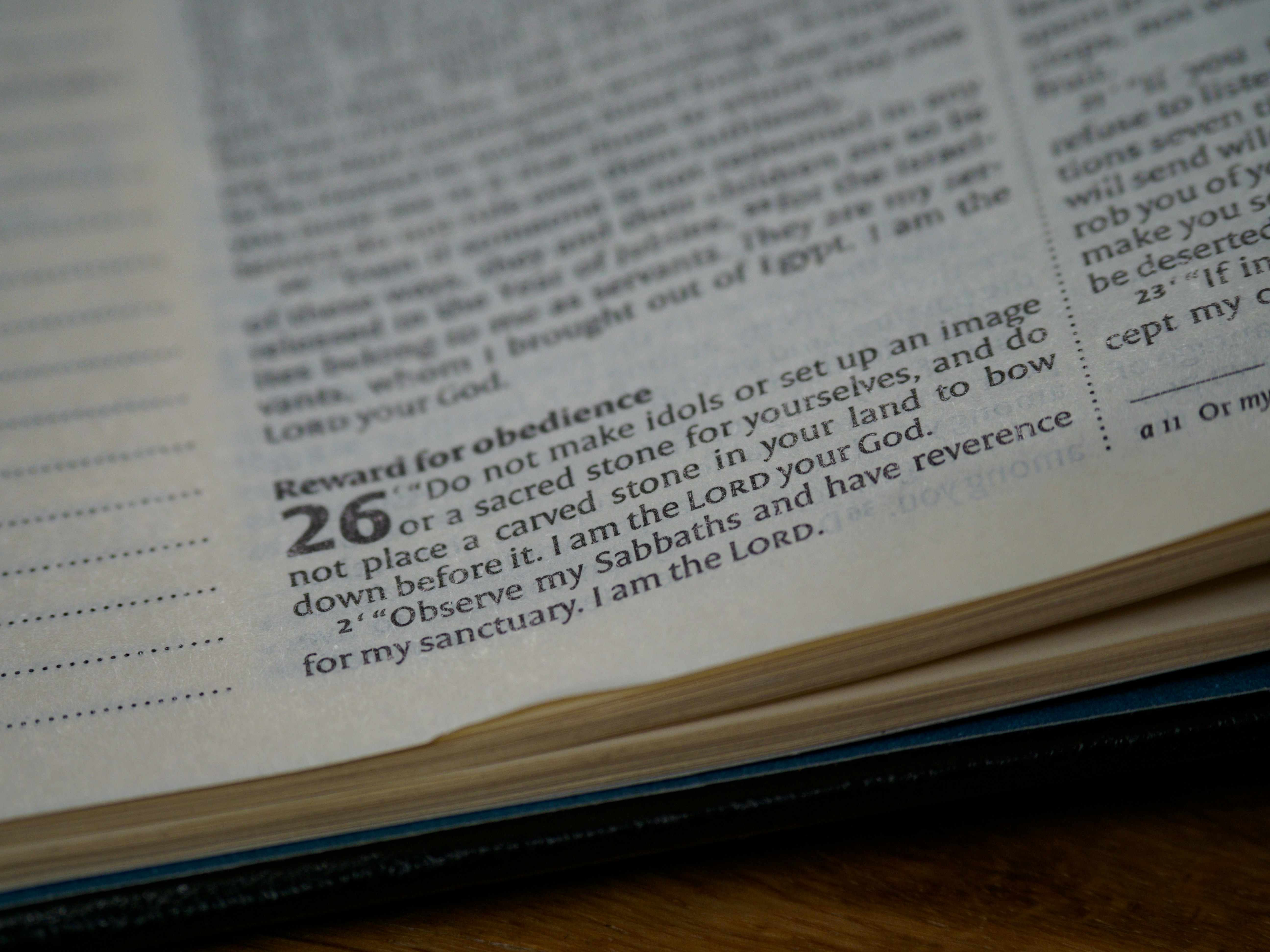Understanding Proverbs 29:7 NKJV: The Righteous and the Wicked

Context and Significance of Proverbs 29:7
The Book of Proverbs, a seminal text within the Hebrew Bible and the Christian Old Testament, serves as a repository of wisdom and moral guidance. Authored primarily by King Solomon, the Proverbs aim to provide insights on righteous living and practical ethics. The overarching purpose of the book is to impart wisdom that transcends time, offering principles that apply to both ancient and modern life. It addresses various aspects of life, such as justice, integrity, and the dichotomy between wisdom and folly.
Proverbs 29:7, within this broader context, highlights the moral and ethical obligations of individuals by contrasting the actions of the righteous with those of the wicked. The verse states, “The righteous considers the cause of the poor, but the wicked does not understand such knowledge” (NKJV). This particular proverb underscores a recurring theme throughout the book: the profound difference in how the righteous and the wicked perceive and act upon issues of justice and compassion. The righteous are depicted as empathetic and just, whereas the wicked are portrayed as indifferent and lacking in moral understanding.
In the broader chapter of Proverbs 29, the focus is on various forms of leadership, social justice, and the consequences of one’s actions. Proverbs 29:7 serves as a crucial reminder of the ethical responsibilities that come with righteous living. It not only speaks to the importance of empathy and justice but also serves as a critique of moral insensitivity and neglect. The verse’s relevance extends beyond its historical context, offering valuable lessons for contemporary readers. It encourages self-reflection on one’s actions and attitudes towards social issues, urging individuals to strive for righteousness and ethical integrity.
Understanding the contrast between the righteous and the wicked as presented in this proverb is essential for grasping its full significance. This dichotomy is a pervasive theme throughout the Book of Proverbs, emphasizing the moral choices that define human character and society. By highlighting this contrast, Proverbs 29:7 invites readers to evaluate their own lives and to pursue a path of righteousness that benefits not only themselves but also the broader community.
The Righteous: Compassion and Insight
Proverbs 29:7 NKJV states, “The righteous considers the cause of the poor, but the wicked does not understand such knowledge.” This verse encapsulates the essence of what it means to be righteous through the lens of compassion and insight. To ‘consider the cause of the poor’ signifies more than mere awareness; it involves a deep, empathetic understanding and proactive support for those in need.
Compassion, as derived from this proverb, is an intrinsic quality of the righteous. It implies an emotional resonance with the plight of the less fortunate, leading to actions driven by empathy and moral insight. Biblical examples abound, such as the Good Samaritan in Luke 10:25-37, who not only noticed the injured man but went out of his way to offer tangible help. This parable illustrates that true righteousness involves active engagement rather than passive sympathy.
In a contemporary context, the same principles apply. The righteous are those who go beyond acknowledging the struggles of the poor and take concrete steps to alleviate their burdens. This can be seen in individuals who volunteer at shelters, advocate for social justice, or provide financial assistance to those in dire straits. Organizations like Habitat for Humanity and the Red Cross embody this spirit by focusing their efforts on understanding and addressing the needs of the disadvantaged.
Moral insight, another crucial aspect highlighted in Proverbs 29:7, involves a discerning awareness of the systemic issues contributing to poverty. The righteous are not only compassionate but also insightful, recognizing that addressing poverty requires more than superficial solutions. They engage in efforts to tackle root causes, such as advocating for policy changes or supporting educational initiatives that empower the poor.
Thus, the righteous are characterized by a blend of compassion and insight. They seek to understand the multifaceted challenges faced by the poor and act with empathy and wisdom to support and uplift them. This holistic approach ensures that their efforts are both meaningful and impactful, reflecting the true essence of righteousness as depicted in Proverbs 29:7.
The Wicked: Ignorance and Indifference
Proverbs 29:7 NKJV illuminates a stark contrast between the righteous and the wicked, particularly highlighting the latter’s traits of ignorance and indifference. The scripture states that “The righteous considers the cause of the poor, but the wicked does not understand such knowledge.” This profound statement underscores a significant moral and ethical divide, where the wicked are characterized by their lack of understanding and empathy towards the plight of others.
Ignorance, in this context, refers to a willful blindness to the suffering and needs of those around them. It is an active choice not to engage with or seek out the truth about social injustices or the hardships faced by the less fortunate. Indifference, on the other hand, is a passive neglect, a failure to feel concern or compassion. Together, these traits form a powerful barrier against social cohesion and communal support.
In biblical times, the lack of understanding and empathy from the wicked would have had severe implications. Communities relied heavily on mutual support and collective responsibility. The indifference of the wicked could lead to neglect of the vulnerable, exacerbating poverty and suffering. This absence of moral duty not only harmed individuals but also weakened the social fabric, undermining the community’s ability to thrive.
In today’s society, the manifestations of ignorance and indifference can be seen in various forms. For instance, the failure to acknowledge systemic issues such as poverty, inequality, and injustice is a modern-day reflection of the wicked’s traits described in Proverbs 29:7. This attitude can lead to policies and practices that neglect the needs of marginalized groups, perpetuating cycles of disadvantage.
Examples abound in contemporary settings. Consider the indifference towards homelessness or the ignorance of climate change impacts on vulnerable populations. These attitudes result in a lack of action and support, further entrenching social divides. The negative impact on communities is profound, fostering environments where empathy and understanding are scarce, and where the needs of the poor and marginalized remain unaddressed.
Understanding the implications of these traits calls for a renewed commitment to fostering empathy and awareness in our daily lives. By recognizing and countering ignorance and indifference, individuals and societies can work towards more just and compassionate communities, reflecting the virtues extolled in Proverbs 29:7.
Applying Proverbs 29:7 in Daily Life
Proverbs 29:7 (NKJV) states, “The righteous considers the cause of the poor, but the wicked does not understand such knowledge.” This verse underscores the importance of empathy and justice, particularly towards the marginalized. To integrate the teachings of Proverbs 29:7 into our daily lives, it is essential to foster compassion and understanding in our interactions and decisions. Here are some practical steps to help you cultivate these values:
1. Practice Active Listening: One of the first steps in understanding the needs of the poor is to listen actively. Engage in conversations with individuals who may be struggling, and offer them your full attention. This practice not only helps build empathy but also allows you to understand their challenges better.
2. Volunteer and Participate in Community Services: Dedicate time to volunteer at local shelters, food banks, or community centers. By directly engaging with those in need, you can develop a deeper appreciation for their circumstances and contribute positively to their lives.
3. Support Ethical Businesses: Make a conscious effort to support businesses and organizations that prioritize fair wages and ethical treatment of their employees. This includes purchasing products from companies that are socially responsible and environmentally sustainable.
4. Educate Yourself and Others: Continuously educate yourself about social issues and the systemic factors contributing to poverty. Share this knowledge with friends, family, and your community to foster a more informed and compassionate society.
5. Reflect on Personal Biases: Engage in regular self-reflection to recognize and address any biases or prejudices you may hold. Understanding your own mindset can help you approach others with greater fairness and empathy.
6. Advocate for Policy Changes: Participate in advocacy efforts to influence local, state, or national policies that aim to reduce poverty and support marginalized communities. Your voice and actions can contribute to systemic changes that benefit those in need.
By integrating these steps into your daily routine, you can embody the principles of righteousness and justice highlighted in Proverbs 29:7. Through compassion, active engagement, and self-reflection, you can make a meaningful difference in the lives of the poor and marginalized, aligning your actions with the values of empathy and understanding.




Leave a Reply
You must be logged in to post a comment.